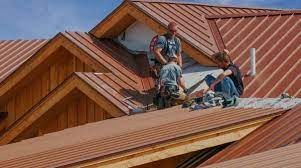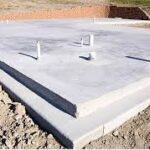To guarantee a durable and dependable roofing system, there are numerous aspects to take into account when installing commercial roofing. The kind of roofing material, installation methods, and upkeep are all important factors, but the underlayment’s quality is one that’s sometimes disregarded but just as important. Between the roof deck and the roofing material itself, underlayment is an essential layer that offers yet another degree of insulation and protection. This blog post will discuss the value of high-quality underlayment and the reasons it should never be overlooked in commercial roofing installations.
- Prevention of Leaks and Waterproofing
Giving a commercial roofing system an extra layer of waterproofing and stopping leaks is one of underlayment’s main purposes. Extreme weather conditions, like heavy rain, snow, or wind-driven rain, can put a lot of stress on the roofing system. Even the most resilient roofing materials can weaken with time. Underlayment functions as a barrier to keep water and moisture out of the roofing structure.
The underlayment acts as a backup layer to protect and preserve the interior of your commercial building in the event that the primary roofing material is damaged. Even a tiny leak in the roofing material without good underlayment could result in significant water damage and expensive repairs.
- Increased Sturdiness and Age
Many environmental elements, such as UV radiation, temperature swings, and severe weather, can affect commercial roofing systems. These factors have the potential to degrade roofing materials over time and cause them to lose their protective properties. Superior underlayment prolongs the life of your commercial roof by providing an additional line of defense.
You can lessen the deterioration and prevent premature aging of your roofing material by applying a layer of underlayment. As a result, your roofing system will last longer and you will save money on replacement and continuous maintenance.
- Control of Temperature
Additionally, underlayment is essential for controlling the temperature in your business building. As an insulator, it keeps heat from escaping in the winter and keeps too much heat from entering in the summer, assisting in the maintenance of a constant temperature inside. As a result, building occupant comfort can rise and significant energy savings can be achieved.
Good underlayment can provide adequate insulation, which lessens the strain on your HVAC system and lowers energy costs and carbon emissions. It can also contribute to the creation of a more welcoming atmosphere for clients and staff, which will ultimately enhance the general usability of your business space.
- Defense Against Glacier Dams
Ice dams can be a serious threat to commercial roofs in areas with cold winters. When snow melts on the upper portion of the roof and then refreezes at the lower edge, a barrier that keeps the melting snow from draining properly is created. This condition is known as an ice dam. This may result in leaks and other damage as water seeps under the roofing materials.
By adding another layer of defense against moisture intrusion, high-quality underlayment can aid in the prevention of ice dam formation. It lessens the chance of snow melting and refreezing at the eaves by assisting in the maintenance of a constant temperature across the surface of the roof.
- Support Structure
Commercial roofing systems contribute to the building’s structural stability in addition to their aesthetic and weatherproof qualities. Good underlayment lessens the stress on the roof deck and evenly distributes the load, preserving the overall structural integrity of your commercial roof.
Underlayment helps spread the weight and guards against damage to the roof structure in areas that frequently experience significant snowfall or where HVAC units and rooftop equipment are installed by professionals like https://rescorproofing.com/. For your commercial building to remain safe and last a long time, this is especially crucial.
- Insulation against sound
Commercial buildings frequently house a variety of uses, including manufacturing, storage, and retail spaces in addition to offices and retail spaces. A high-quality underlayment can reduce noise transfer into and out of a building by acting as a sound barrier. This can enhance the general experience for clients and guests as well as help create a calmer, more productive work environment for staff.
In Summary
The value of high-quality underlayment in the context of commercial roofing cannot be emphasized. It plays a crucial role in temperature regulation, soundproofing, waterproofing, enhancing durability, preventing ice dams, and providing structural support. By extending the life of your roofing system, lowering energy costs, and averting expensive repairs, investing in high-quality underlayment is not just a wise financial move—it’s also a cost-effective one. To ensure the longevity and performance of your roofing system, give careful consideration to the selection of high-quality underlayment when organizing your next commercial roofing installation, find more here.



